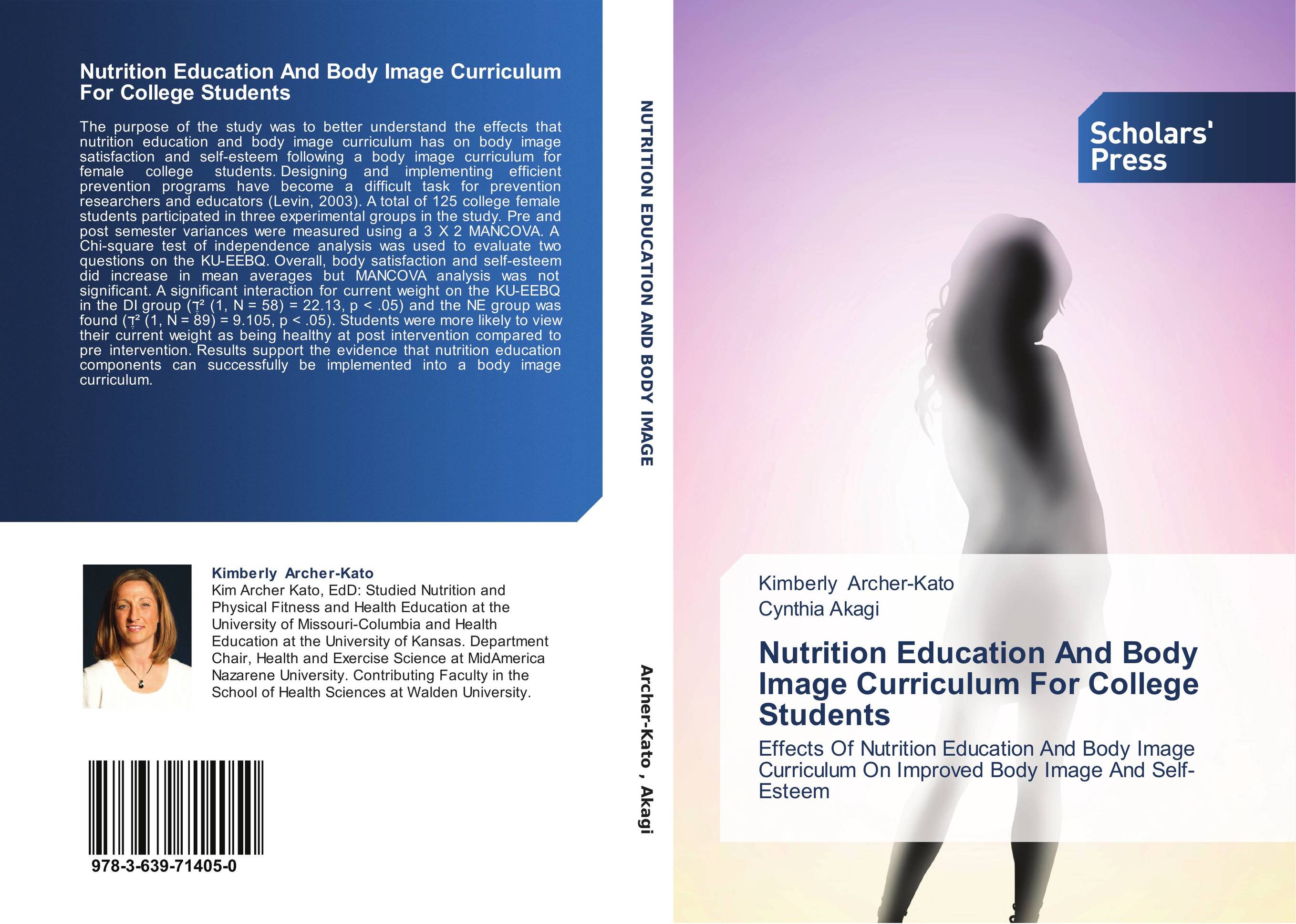| Поиск по каталогу |
|
(строгое соответствие)
|
- Профессиональная
- Научно-популярная
- Художественная
- Публицистика
- Детская
- Искусство
- Хобби, семья, дом
- Спорт
- Путеводители
- Блокноты, тетради, открытки
Nutrition Education And Body Image Curriculum For College Students. Effects Of Nutrition Education And Body Image Curriculum On Improved Body Image And Self-Esteem

В наличии
| Местонахождение: Алматы | Состояние экземпляра: новый |

Бумажная
версия
версия
Автор: Kimberly Archer-Kato and Cynthia Akagi
ISBN: 9783639714050
Год издания: 2014
Формат книги: 60×90/16 (145×215 мм)
Количество страниц: 208
Издательство: Scholars' Press
Цена: 47825 тг
Положить в корзину
| Способы доставки в город Алматы * комплектация (срок до отгрузки) не более 2 рабочих дней |
| Самовывоз из города Алматы (пункты самовывоза партнёра CDEK) |
| Курьерская доставка CDEK из города Москва |
| Доставка Почтой России из города Москва |
Аннотация: The purpose of the study was to better understand the effects that nutrition education and body image curriculum has on body image satisfaction and self-esteem following a body image curriculum for female college students. Designing and implementing efficient prevention programs have become a difficult task for prevention researchers and educators (Levin, 2003). A total of 125 college female students participated in three experimental groups in the study. Pre and post semester variances were measured using a 3 X 2 MANCOVA. A Chi-square test of independence analysis was used to evaluate two questions on the KU-EEBQ. Overall, body satisfaction and self-esteem did increase in mean averages but MANCOVA analysis was not significant. A significant interaction for current weight on the KU-EEBQ in the DI group (?? (1, N = 58) = 22.13, p < .05) and the NE group was found (?? (1, N = 89) = 9.105, p < .05). Students were more likely to view their current weight as being healthy at post intervention compared to pre intervention. Results support the evidence that nutrition education components can successfully be implemented into a body image curriculum.
Ключевые слова: body image, Self-esteem, college students, body dissatisfaction, body-esteem, Nutrition Education, Females, unheatlhy dieting



